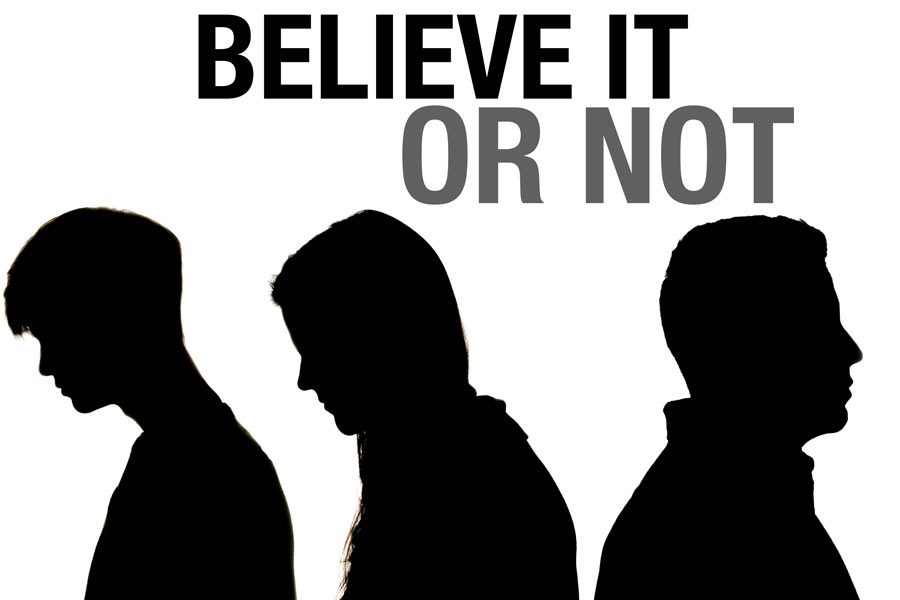Atheist students discuss living in a religious society
Photo by Morgan Bonner
Photo illustration.
November 2, 2016
They look around the stadium. Every head is bowed, every pair of eyes are tightly closed–except theirs. While everyone else stands in recognition and mutters ‘amen’, the others stand back, feeling strangely isolated. A sense of indifference settles over their mind, while a sense of belonging circulates through the religious.
During the beginning of games and ceremonies, many faith-based customs are performed. Although many stand out of respect for the players, not everyone participating is Christian or even has a religious affiliation.
“I like to respect people and their religion so I partake in their prayers before a football game or a ceremony,” Robert Johnson* said. “I find it offensive when people disrespect my personal beliefs, so I would not do the same to other people.”
Atheists are exposed to historical elements that embed religious aspects into cultural ties and connections. Many societies built their cities around a centralized religion, which students learn about in school.
“During history class when we learn about the Crusades and how different religious groups were persecuted just for the name of their religion is terrible, and the worst thing about it is that it’s still occurring today,” sophomore Kayla Walthall said. “If you turn on the news you can hear politicians or your average American talk about ‘Muslim terrorists’ and how all Muslims are out for blood.”
Although some atheists are uncomfortable and separated among their peers, Johnson has felt generally indifferent about their role at school.
“I feel pretty normal because religion here isn’t as pushed as it is in other schools,” Johnson said. “Being an atheist doesn’t make you different from anyone else in the school.”
There are organizations and meetings at school that are aimed to unify different religious groups. These groups allow them to raise money for charitable events, while simultaneously bringing a sense of solidarity to their community. The small group of atheists is left to face their issues alone without help; they’re kept secluded in fear of what people would say.
“This is hard on us at times since we’re alone when we face family, social or academic problems in life. Christians have clubs to meet and gather strength from each other; we’re left to face our obstacles all on our own,” Walthall said. “The fact that atheists and agnostic students do not have an organization just for ourselves makes us feel even more disconnected from the rest of the student body. I believe the reason none of us have actually gone out and created a club for non-secularists is because we’re afraid of how the student body will treat us knowing our beliefs.”
Outside of school, atheists face trouble trying to find ways to communicate their beliefs to family members. Many parents are unaware their children are atheist.
“I’m kind of scared of telling my mother, since she is a Christian,” Johnson said. “It’s a touchy subject, and it acts as a barrier between me and my mom since that’s another thing we can’t talk about.”
Even though they view the world from a different perspective, non-believers still feel like they can live a contented life without a higher power to look up to.
“I believe that everyone has one chance at a happy life. I can’t say this for other atheists since we all have our own beliefs, but in my eyes, this gives us even more reason to be kind,” Walthall said. “You and everyone you will ever see will only have one chance to live, and that means making this the best life for yourself and people you meet everyday.”
*name has been changed to protect privacy

















